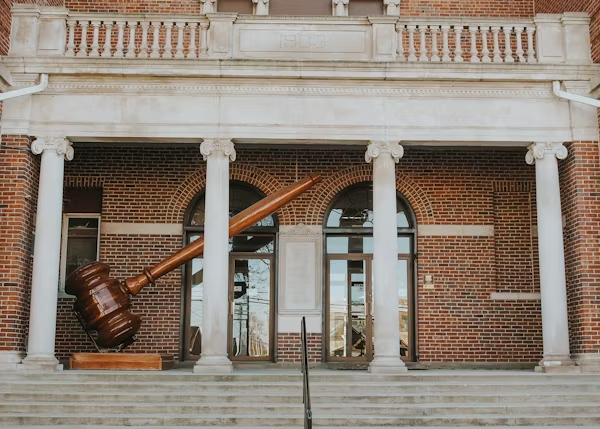In the world of alternative education, the University of Metaphysical Sciences (UMS) has long held a unique position. Offering programs centered on metaphysics, spirituality, and holistic studies, it attracts students drawn to non-traditional learning paths. However, in recent times, this institution has become the focus of a highly publicized lawsuit that has caught the attention of students, alumni, and the broader educational community. This legal case raises important questions about the legitimacy, accountability, and future of metaphysical education. But what exactly sparked this lawsuit? How does it affect the university’s reputation and those connected to it? Let’s explore the facts and implications surrounding the University of Metaphysical Sciences lawsuit in clear and straightforward terms.
Understanding the University of Metaphysical Sciences
Before diving into the lawsuit, it’s essential to understand what the University of Metaphysical Sciences represents. Founded with the goal of exploring spiritual and metaphysical knowledge, UMS offers courses and degrees focused on topics like energy healing, consciousness studies, and intuitive development. Unlike traditional universities, it operates mainly online and embraces alternative approaches to education and personal growth.
UMS appeals to a niche group of learners who seek educational experiences beyond conventional academic frameworks. While its unconventional methods have garnered both praise and skepticism, it has maintained a steady following over the years.
What Triggered the Lawsuit?
The lawsuit against the University of Metaphysical Sciences revolves around several critical issues, primarily concerning accreditation and misrepresentation. Plaintiffs—consisting of former students and consumer protection advocates—allege that UMS misled students regarding the recognition and value of its degrees. The core of the complaint is that many graduates found their qualifications were not recognized by employers or other educational institutions, leading to financial loss and career setbacks.
The legal papers claim that UMS failed to provide clear and honest information about its accreditation status and the limitations of its programs. In the eyes of the plaintiffs, this constitutes deceptive practices, potentially violating consumer protection laws.
Accreditation Concerns and Educational Standards
One of the main points in the lawsuit is UMS’s accreditation status. Accreditation is a process that educational institutions undergo to demonstrate that they meet certain quality standards recognized by government bodies or authorized agencies. Most traditional universities and colleges hold regional or national accreditation, which helps ensure the value of their degrees in the job market and further education.
UMS, however, operates without regional accreditation. Instead, it relies on state-level authorization to grant degrees, which does not necessarily guarantee acceptance by employers or other universities. This distinction is vital because many students did not fully understand the difference when enrolling, leading to disappointment when their degrees did not carry the weight they expected.
Impact on Students and Alumni
For many who invested time and money into studying at UMS, the lawsuit brings up serious concerns about their educational investment. Graduates worry about how their degrees will be perceived and whether they will be able to use their credentials to advance careers or pursue higher education.
Moreover, the lawsuit highlights the emotional and financial toll such situations can have. Some former students claim they were encouraged to take on significant debt for courses that did not provide the professional benefits promised. Others feel their personal and spiritual growth, though meaningful, has been overshadowed by questions about the institution’s legitimacy.
University’s Response to the Allegations
In response to the lawsuit, representatives from the University of Metaphysical Sciences have defended their practices. They emphasize their mission to provide unique educational experiences in metaphysics and spirituality, which do not always fit within traditional academic models.
UMS officials argue that the institution has been transparent about its accreditation status in its materials and communications. They also point out that many students enroll in their programs for personal development rather than conventional career goals. The university stresses its commitment to serving its community and maintaining educational offerings that support spiritual growth.
The Broader Debate Around Alternative Education
This lawsuit is not just about one university; it opens up a broader discussion about alternative education models and how they fit into the modern educational landscape. As more learners seek programs beyond traditional universities, questions about quality, transparency, and consumer protection become increasingly important.
Alternative education institutions like UMS often challenge standard definitions of education by focusing on holistic and spiritual development. However, without recognized accreditation or clear disclosures, these programs risk misleading students about the tangible benefits of their studies.
Legal Implications and Possible Outcomes
The legal proceedings against the University of Metaphysical Sciences are still ongoing, and the outcome remains uncertain. Should the court find in favor of the plaintiffs, it could result in financial compensation for affected students and stricter regulations on how metaphysical and similar institutions market themselves.
A ruling against UMS may also encourage other alternative education providers to be more transparent and cautious in their advertising and program claims. Conversely, a dismissal of the case might embolden such institutions to continue operating under the current standards.
What This Means for Prospective Students
For anyone considering enrollment at the University of Metaphysical Sciences or similar institutions, this lawsuit serves as an important cautionary tale. It’s crucial to thoroughly research the accreditation and recognition of any program before committing financially or academically.
Students should understand the difference between state authorization and accreditation, and consider how a degree will be valued in their desired career or educational path. Beyond accreditation, looking into reviews, alumni experiences, and legal histories can provide insight into what to expect.
How to Protect Yourself When Choosing Alternative Education
Choosing to study metaphysics or other alternative subjects can be rewarding, but it requires due diligence. Prospective students should ask questions about the institution’s accreditation, program goals, career services, and financial policies. Reading the fine print and seeking external opinions can prevent surprises later.
Being aware of legal actions, such as the University of Metaphysical Sciences lawsuit, is also helpful. It highlights the potential risks involved and the importance of making informed decisions when exploring unconventional education routes.
Conclusion
The University of Metaphysical Sciences lawsuit sheds light on the challenges faced by alternative education providers and their students. It raises vital questions about transparency, educational quality, and consumer rights in a growing but sometimes unregulated sector.
While metaphysical studies offer unique perspectives and personal growth opportunities, they may not always align with traditional academic or career standards. The ongoing lawsuit serves as a reminder that students must approach these programs with careful consideration, fully understanding what their education entails and how it will be recognized.
As this case unfolds, it will undoubtedly impact the future of metaphysical education and the way alternative institutions operate, hopefully leading to better protections and clearer communication for students seeking non-traditional learning paths.
Frequently Asked Questions (FAQs)
What is the University of Metaphysical Sciences lawsuit about?
It centers on allegations that UMS misled students about its accreditation and the value of its degrees.
Is the University of Metaphysical Sciences accredited?
UMS has state authorization but lacks regional accreditation recognized by most employers and universities.
How does the lawsuit affect current students?
It raises concerns about the recognition of their degrees and potential financial loss.
What has the university said in response to the lawsuit?
UMS maintains it has been transparent and focuses on personal growth rather than traditional career outcomes.
Should I avoid enrolling in metaphysical programs?
Not necessarily, but research accreditation and program goals thoroughly before enrolling.
Will this lawsuit change alternative education?
It could lead to stricter regulations and more transparency in how these institutions operate.











